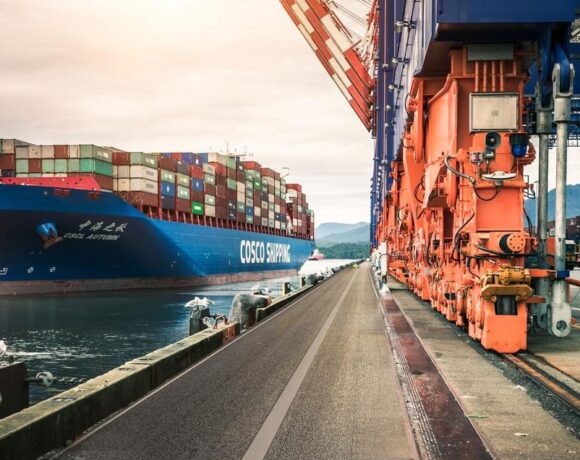Beyond Traditional Means: Rethinking Transportation for Tomorrow

The world of travel is often at a point that could be incredibly transformative, and now is such a time. As transportation dynamics continue to evolve, they are set to shape things in profound and unprecedented ways. From traditional modes to emerging tools, the way we explore the world is undergoing a revolutionary shift, paving the way for a new era of travel experiences.
In the current transportation landscape, cars, trains, and planes have long been the primary means of travel, providing essential connections between people and places. These modes have allowed us to embark on adventures, discover new horizons, and forge memories. However, the challenges and limitations of the existing transportation system have become increasingly evident, calling for a paradigm shift in the way we think about and approach travel. This is the time to hear from the innovative minds. A competitive environment where commuters can negotiate fresher takes on the challenge is welcome.
Congestion is a pressing issue in many cities, leading to wasted time, increased pollution, and heightened frustration for travelers. Limited infrastructure poses a significant obstacle to efficient and seamless travel experiences, particularly in regions where transportation networks are not adequately developed or interconnected. Environmental concerns, including carbon emissions and their impact on climate change, have underscored the urgent need for sustainable solutions that minimize our ecological footprint.
In the face of these challenges, innovation and adaptation are paramount to shaping the future of travel. The transportation industry must embrace new models that not only address existing issues, but also offer greater alternatives, like SUBSCRIBE ME, a car subscription application developed by AWR Mobility. It is imperative that we reimagine the way we move, exploring other ways that prioritize environmental stewardship and efficiency.
The shift towards sustainable transportation is gaining momentum across the globe. There is a growing emphasis on adopting eco-friendly travel options that reduce carbon emissions and minimize the impact on the environment. Methods without such issues, such as bicycles, scooters, and electric vehicles, are emerging as viable options to traditional petrol-powered cars. These innovations not only contribute to reducing our carbon footprint, but also promote healthier and greener travel habits, fostering a greener future.
Technological advancements are revolutionizing the travel experience, enhancing convenience, efficiency, and safety. The integration of artificial intelligence and machine learning is transforming travel planning, making it more intuitive and personalized. AI-powered algorithms provide travelers with tailored recommendations, suggesting destinations, accommodations, and activities based on individual preferences and past experiences. This level of personalization ensures that each journey is uniquely curated, catering to specific desires and interests.
Furthermore, smart transportation systems are playing a crucial role in improving transportation efficiency and safety. Smart infrastructure, equipped with sensors and real-time data analysis capabilities, allows for optimized traffic management, proactive incident prevention, and adaptive routing. These advancements result in smoother and safer journeys, minimizing travel disruptions and enhancing overall travel experiences. Our mobile applications are even granting us the ability to access data and opportunities to evolve our ways from our fingertips.
In enhancing the travel experience, the aforementioned SUBSCRIBE ME has emerged as a notable innovation. It offers users a convenient and flexible way to access a range of vehicles without the commitments of traditional car ownership. With it, travelers can subscribe to a car of their choice for a specific duration, adapting their transportation needs according to their travel plans. This subscription-based model not only provides convenience and flexibility, but also promotes a sustainable approach by encouraging shared vehicle usage and reducing the overall number of cars on the road. By leveraging technology and prioritizing sustainability, SUBSCRIBE ME exemplifies the transformative potential of transport innovations in shaping the future of travel.
The horizon holds immense promise, with countless possibilities for further evolution and improvement, including car subscription models. As we continue to embrace innovation and sustainability, we can create a future where travel knows no boundaries and exploration becomes an exhilarating and responsible journey. This requires the collective effort and collaboration of various stakeholders within the travel industry, including governments, businesses, technology providers, and travelers themselves.
To realize this vision, it is essential for the travel industry to continue investing in research and development, collaborating with technology partners, and prioritizing sustainability in all aspects of travel planning and operations. Citizens need to be provided with ways to contribute to all this. Governments and regulatory bodies also play a vital role in creating an enabling environment that supports and incentivizes inventive transportation solutions. Policies and regulations that promote the adoption and development of a more varied mix is precisely what is needed.
As stakeholders in the travel industry, we have the power to drive change through our choices and actions. By making conscious decisions to support eco-friendly transportation options, we can contribute to reducing our footprint and promoting a more sustainable travel culture. Embracing new technologies and platforms like SUBSCRIBE ME allows us to experience the convenience and flexibility of shared transportation, while also reducing our overall environmental impact.
The future of travel is not only about improving transportation modes and infrastructure; it also encompasses the way we perceive and experience travel. As technology continues to advance, virtual and augmented reality have the potential to redefine the travel landscape. Imagine being able to explore distant destinations from the comfort of your own home, immersing yourself in virtual travel that provides a sense of presence and discovery. Virtual reality can open doors to accessibility, allowing people with physical limitations or financial constraints to experience the wonders of the world in ways previously unimaginable.
Additionally, smart cities will be relevant in what happens next. As urban areas become more interconnected and digitally integrated, transportation systems will seamlessly merge with other elements of city infrastructure. There is a horizon where transportation is connected to smart grids, enabling electric vehicles to charge automatically at designated stations, and traffic lights adjust in real-time based on traffic patterns. Such integration will enhance the efficiency and sustainability of travel and improve the overall quality of life in cities.
The future of travel is being shaped by changing dynamics and innovative technologies. Means of getting about that are more aware of ecological impacts, advancements in AI and machine learning, and the rise of shared mobility platforms are revolutionizing the way we explore the world. By accepting these changes, investing in creative infrastructure, and prioritizing responsible travel practices, we can assemble an environment where travel is altogether convenient, efficient, conscious and enriching. The opportunities that lie ahead could be something truly transformative.
Last Updated on 2 years by News Desk 2













